Books
Recent articles
‘Natural Neuroscience: Toward a Systems Neuroscience of Natural Behaviors,’ an excerpt
In his new book, published today, Nachum Ulanovsky calls on the field to embrace naturalistic conditions and move away from overcontrolled experiments.

‘Natural Neuroscience: Toward a Systems Neuroscience of Natural Behaviors,’ an excerpt
In his new book, published today, Nachum Ulanovsky calls on the field to embrace naturalistic conditions and move away from overcontrolled experiments.
‘Bioethics and Brains: A Disciplined and Principled Neuroethics,’ an excerpt
In their new book, published earlier this week, Giordano and Shook examine how ethics can guide neuroscience research and its real-world applications.
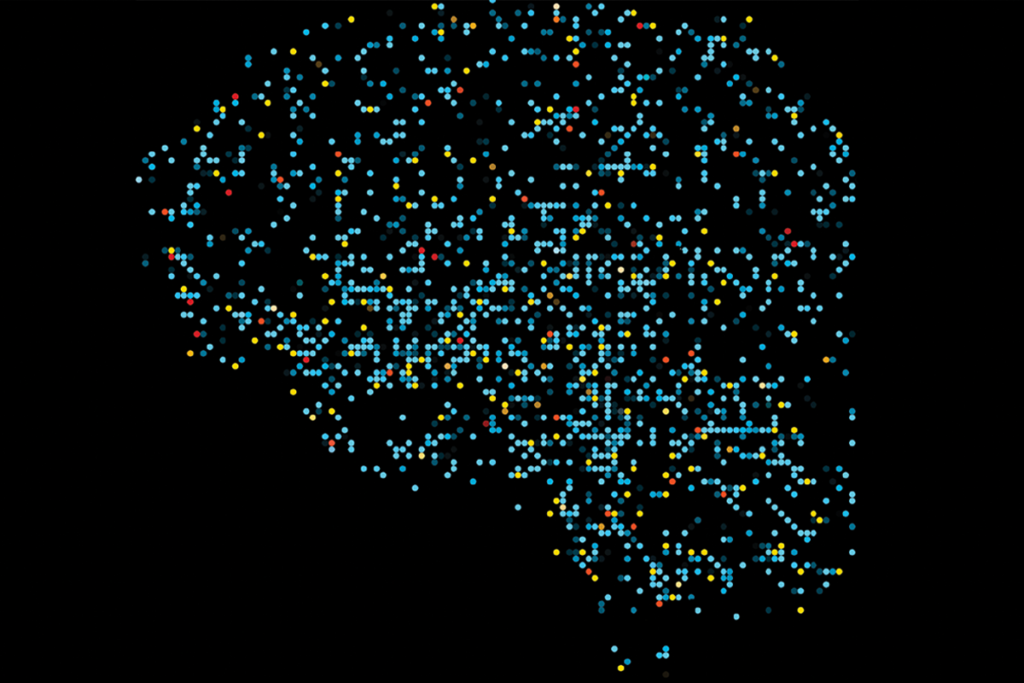
‘Bioethics and Brains: A Disciplined and Principled Neuroethics,’ an excerpt
In their new book, published earlier this week, Giordano and Shook examine how ethics can guide neuroscience research and its real-world applications.
‘Doctored: Fraud, Arrogance, and Tragedy in the Quest to Cure Alzheimer’s,’ an excerpt
In his new book, published today, investigative journalist Charles Piller tells the story of the scientific misconduct that shook Alzheimer’s disease research to its core, and the neuroscientist who helped to expose it.
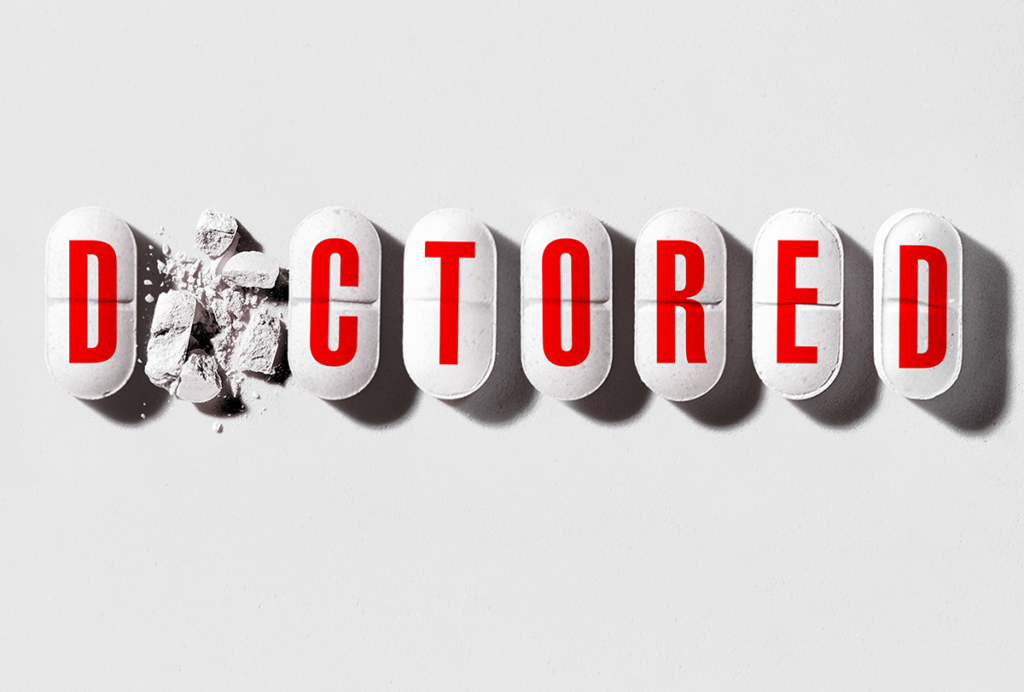
‘Doctored: Fraud, Arrogance, and Tragedy in the Quest to Cure Alzheimer’s,’ an excerpt
In his new book, published today, investigative journalist Charles Piller tells the story of the scientific misconduct that shook Alzheimer’s disease research to its core, and the neuroscientist who helped to expose it.
Future watch: What should neuroscience prioritize during the next 10 to 20 years?
For The Transmitter’s first annual book, five contributing editors reflect on what subfields demand greater focus in the near future—from dynamical systems and computation to technologies for studying the human brain.
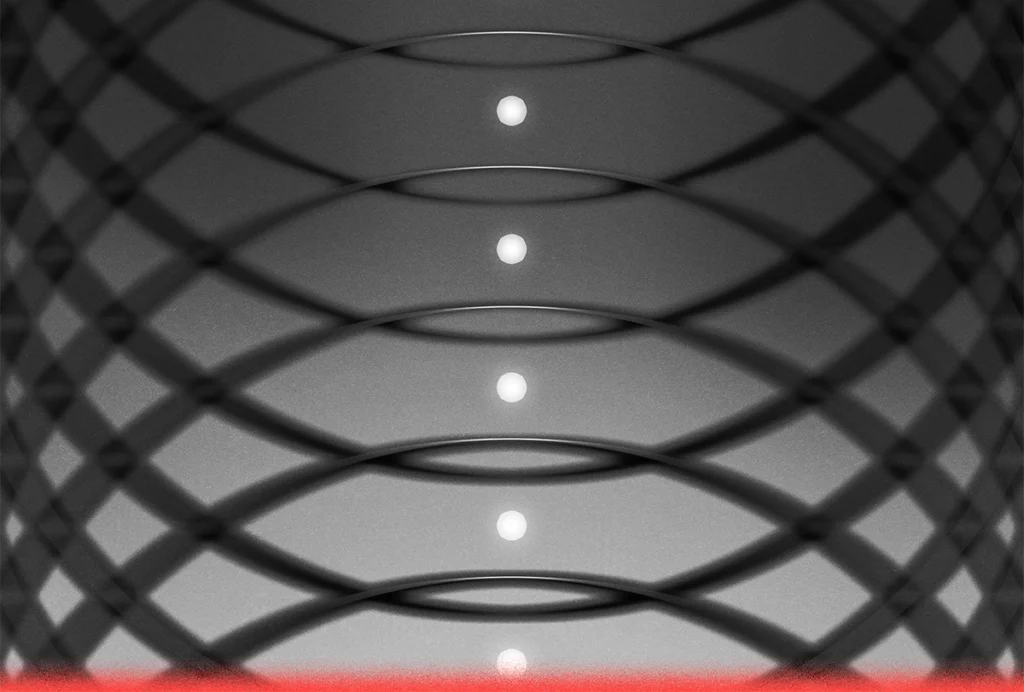
Future watch: What should neuroscience prioritize during the next 10 to 20 years?
For The Transmitter’s first annual book, five contributing editors reflect on what subfields demand greater focus in the near future—from dynamical systems and computation to technologies for studying the human brain.
Open-access neuroscience comes to the classroom: Q&A with Liz Kirby
Neuroscience textbooks can be prohibitively expensive for some undergraduate students. A new open-access alternative seeks to change that.
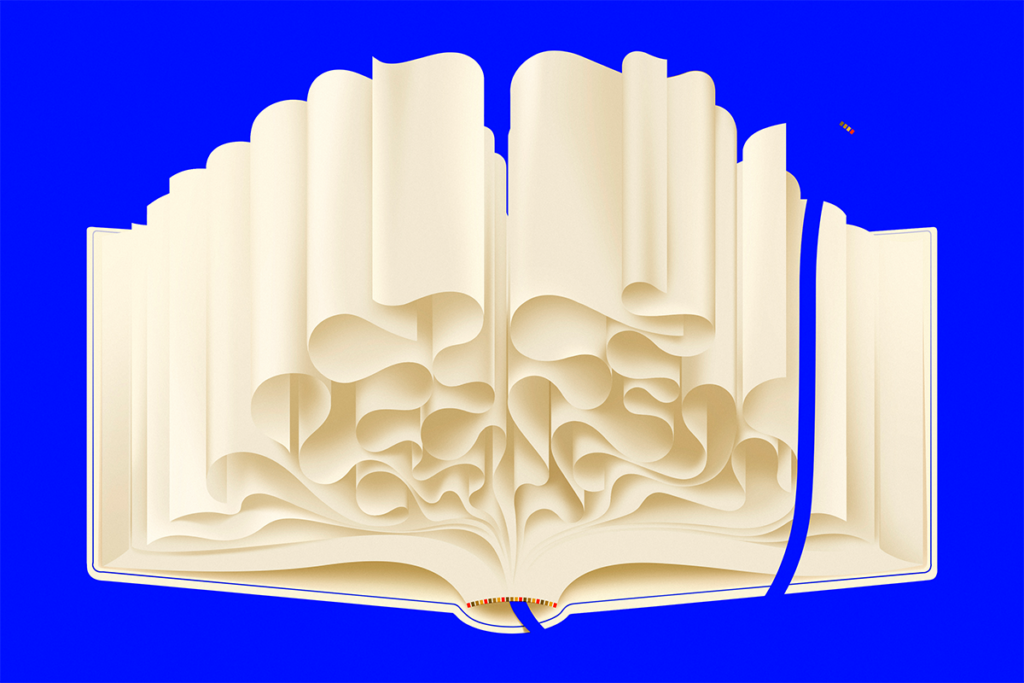
Open-access neuroscience comes to the classroom: Q&A with Liz Kirby
Neuroscience textbooks can be prohibitively expensive for some undergraduate students. A new open-access alternative seeks to change that.
Are brains and AI converging?—an excerpt from ‘ChatGPT and the Future of AI: The Deep Language Revolution’
In his new book, to be published next week, computational neuroscience pioneer Terrence Sejnowski tackles debates about AI’s capacity to mirror cognitive processes.
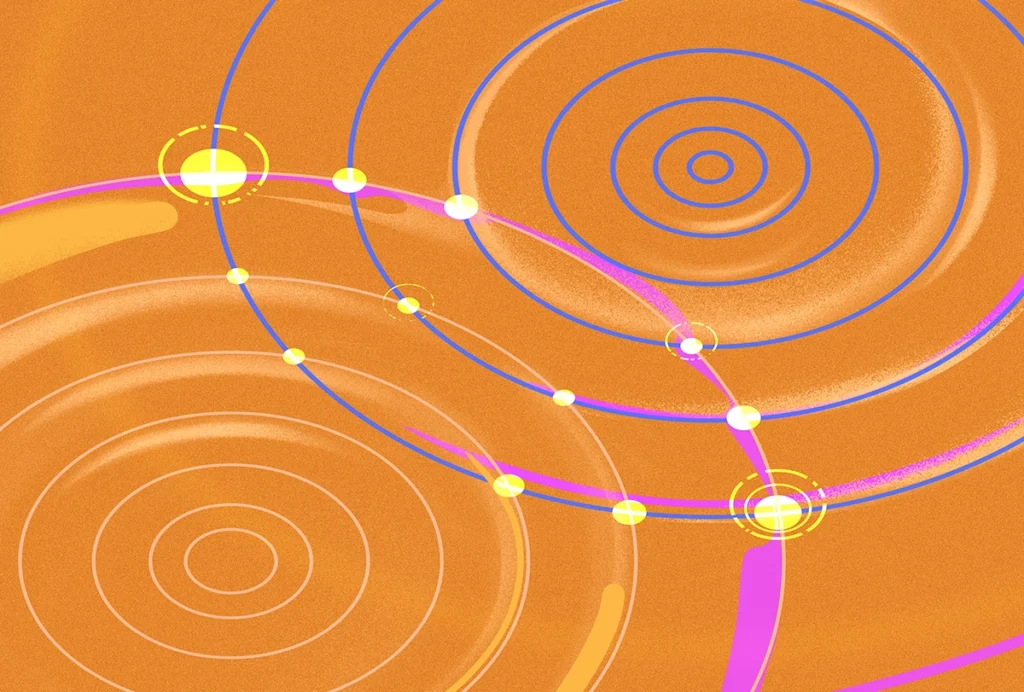
Are brains and AI converging?—an excerpt from ‘ChatGPT and the Future of AI: The Deep Language Revolution’
In his new book, to be published next week, computational neuroscience pioneer Terrence Sejnowski tackles debates about AI’s capacity to mirror cognitive processes.
Crafting tales of science with Theanne Griffith
A lifelong passion for writing helped the neuroscientist land a book deal and publish 15 chapter books for early readers, covering topics ranging from what the cerebellum does to how a cake bakes.

Crafting tales of science with Theanne Griffith
A lifelong passion for writing helped the neuroscientist land a book deal and publish 15 chapter books for early readers, covering topics ranging from what the cerebellum does to how a cake bakes.
From reductionism to dynamical systems: How two books influenced my thinking across 30 years of neuroscience
Nicole Rust describes her career-changing literary journey of joy, free will and the evolution of a field.
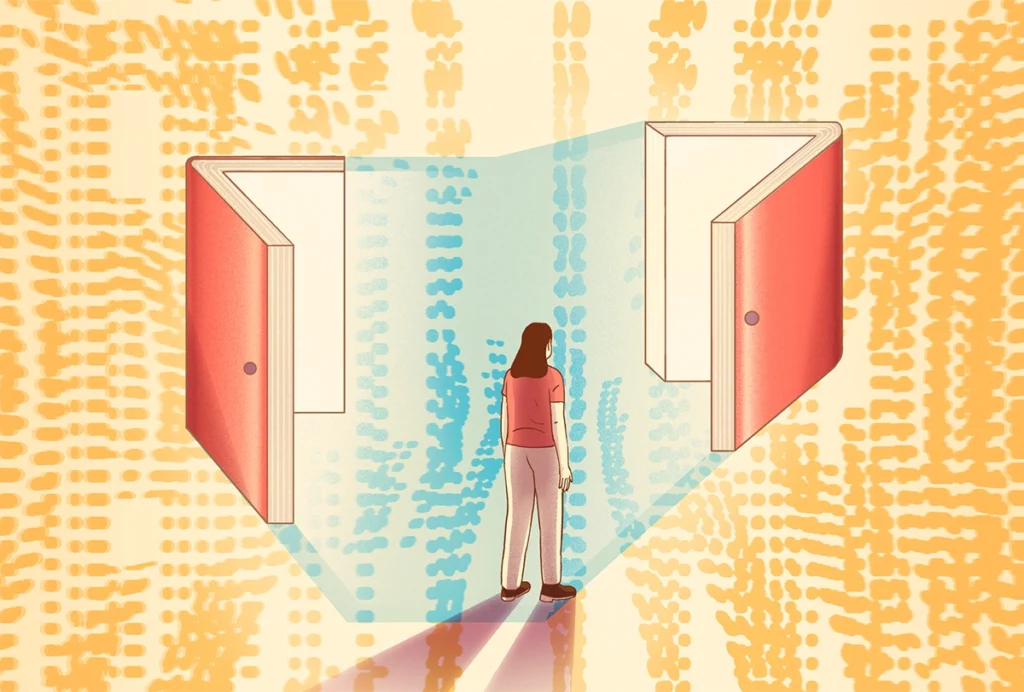
From reductionism to dynamical systems: How two books influenced my thinking across 30 years of neuroscience
Nicole Rust describes her career-changing literary journey of joy, free will and the evolution of a field.
How did consciousness evolve? An excerpt from ‘A History of Bodies, Brains, and Minds: The Evolution of Life and Consciousness’
In his new book, to be published in September, neuroscientist Francisco Aboitiz links consciousness back to the earliest days of biological life.
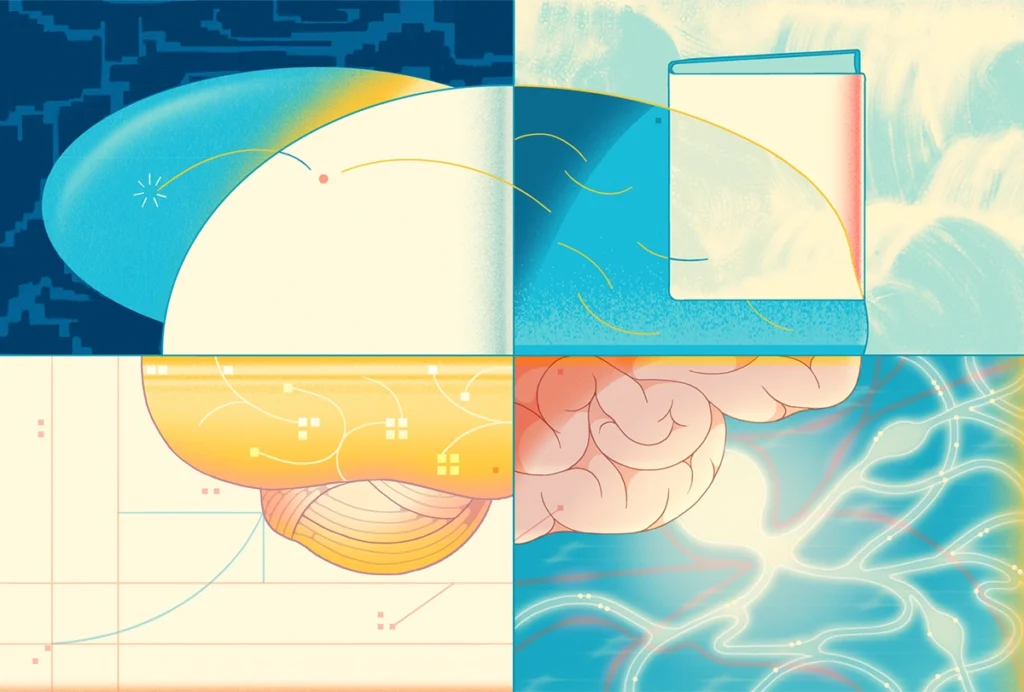
How did consciousness evolve? An excerpt from ‘A History of Bodies, Brains, and Minds: The Evolution of Life and Consciousness’
In his new book, to be published in September, neuroscientist Francisco Aboitiz links consciousness back to the earliest days of biological life.
Consciously smelling—an edited excerpt from ‘Stinking Philosophy! Smell Perception, Cognition, and Consciousness’
In his new book, published earlier this month, Benjamin Young tackles the debates and central questions surrounding olfactory perception, cognition and consciousness.
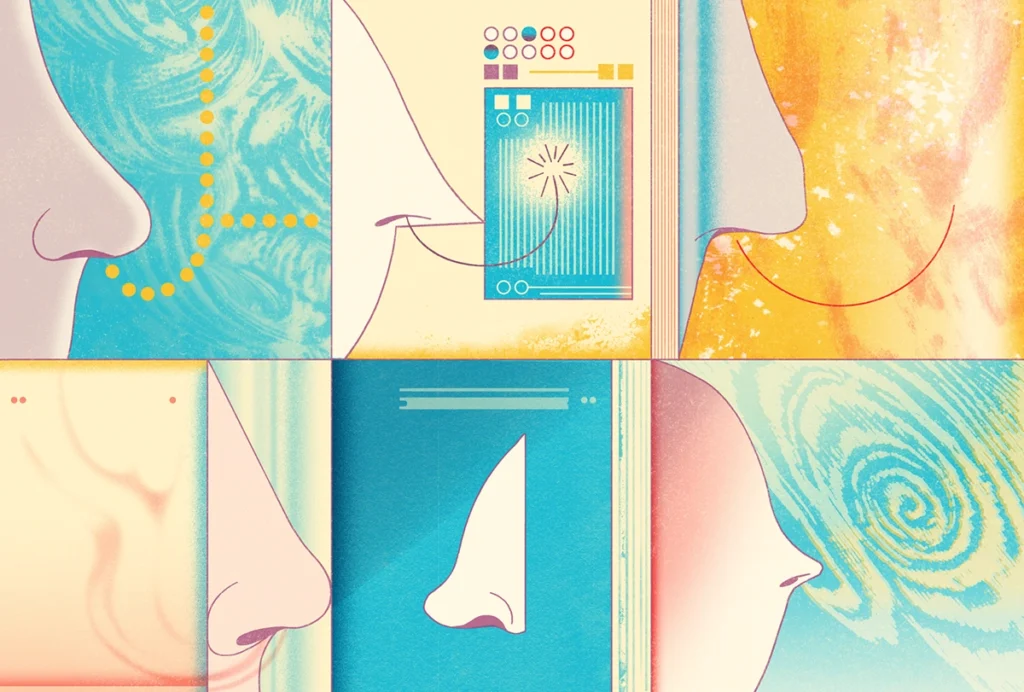
Consciously smelling—an edited excerpt from ‘Stinking Philosophy! Smell Perception, Cognition, and Consciousness’
In his new book, published earlier this month, Benjamin Young tackles the debates and central questions surrounding olfactory perception, cognition and consciousness.
Explore more from The Transmitter
During decision-making, brain shows multiple distinct subtypes of activity
Person-to-person variability in brain activity might represent meaningful differences in cognitive processes, rather than random noise.

During decision-making, brain shows multiple distinct subtypes of activity
Person-to-person variability in brain activity might represent meaningful differences in cognitive processes, rather than random noise.
Basic pain research ‘is not working’: Q&A with Steven Prescott and Stéphanie Ratté
Prescott and Ratté critique the clinical relevance of preclinical studies in the field and highlight areas for improvement.

Basic pain research ‘is not working’: Q&A with Steven Prescott and Stéphanie Ratté
Prescott and Ratté critique the clinical relevance of preclinical studies in the field and highlight areas for improvement.
Proposed NIH budget cut threatens ‘massive destruction of American science’
A leaked draft of a Trump administration proposal includes an approximately 40 percent cut to the National Institutes of Health’s budget and a major reorganization of its 27 institutes and centers.

Proposed NIH budget cut threatens ‘massive destruction of American science’
A leaked draft of a Trump administration proposal includes an approximately 40 percent cut to the National Institutes of Health’s budget and a major reorganization of its 27 institutes and centers.